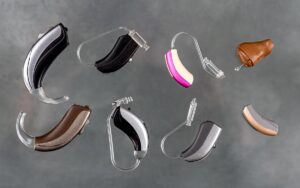
Many people have powerful memories of a cherished family pet. Cats, dogs, birds, rabbits, and a wide array of other animals can enrich our lives, and even, in some cases, become close companions. Quality of life and symptom management for people who have hearing loss can also be improved by having a pet buddy.
In some cases, pets bring these benefits because they have been specially trained to do so. Particular tasks or specific types of help can be carried out by these animals which are trained to provide help to people with hearing loss. Sometimes, though, that’s not the situation. Even a common animal companion with no special training can provide comfort and friendship. Special bonds between animals and individuals who have hearing loss are frequently formed as a result.
Can owning a pet give you improved mental health?
With hearing loss, it can be hard to hear and understand what people are saying, which can feel really isolating. This gap in communication can cause the person with hearing loss to seclude themselves.
So, is having a pet helpful? It sure is! There are a number of non-verbal ways that a companion animal can communicate. And while clear communication is important with animals, it doesn’t depend on verbal language. People with hearing loss can effectively bond with all kinds of pets (this is typically dependent on personal preferences), and these pets can give comfort and emotional reinforcement during what might be a very lonesome time.
Clearly, this doesn’t take the place of contact between humans. But it can give some consolation and support when making other connections can be difficult. Also, pets can give you more chances to make connections with other humans. Taking your dog to the dog park, for example, can give you a chance to be around other people, even if you don’t necessarily strike up a conversation or make a new friend.
Pets can be great helpers
Service dogs, as an example, make use of specialized training to assist their humans get around the world more safely. Individuals with hearing loss will often fail to hear important sounds around them and service animals are specifically trained to pay attention to those sounds and to provide assistance to their human.
Here are a few things that a service dog can do for someone with hearing loss:
- Detecting the sound of approaching traffic or other dangers.
- Alerting their human to everyday sounds including a ringing phone, alarm clock, or a screeching teapot.
- Hearing the doorbell ring or a knock on the door.
- Letting their human know that the smoke alarm is sounding.
- Recognizing when somebody speaks their human’s name or otherwise speaks to their human is also something service dogs can be trained to do. People with hearing loss will have an easier time communicating with others as a result.
Service animals are specially trained to notice these sounds and communicate them to their human. But service animals aren’t the only way one could benefit from having an animal around. Even a dog without any training will often bark when someone rings the doorbell or knocks on the door. Cats and other animals will also usually react to sudden or unknown sounds which their owner will recognize if they are tuned in to their pet.
A symbiotic relationship
Pets can add many benefits to your life without you even realizing it. Adding some structure to daily life is one of those benefits. They need to be fed, walked, and given love on a regular basis, for instance. This structure can be an important source of comfort. Lots of different types of animal-assisted therapies exist because of this.
But it’s essential to be thoughtful if you’re considering a pet or a service animal. You want to select an animal that’s going to meet your requirements and that you will be able to properly take care of.
While a service animal can be a great help, they aren’t able to provide the same level of long-term benefits or the same capabilities as a hearing aid. Pets can, however, be wonderful companions and can improve your overall quality of life. They can be a unique and valuable part of their life.
Take the first step toward hearing better. Give us a call today!
[blogcta]




